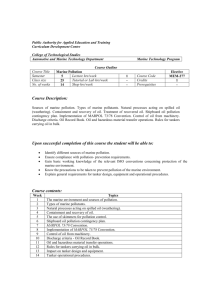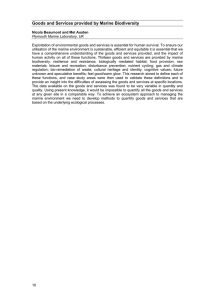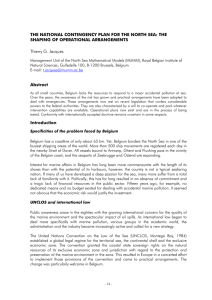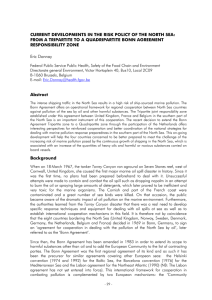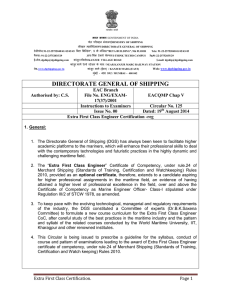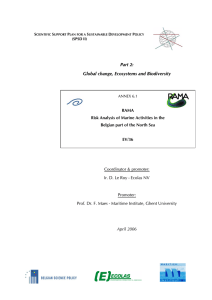WELCOME BY RENAAT LANDUYT, MINISTER OF MOBILITY AND THE NORTH SEA
advertisement
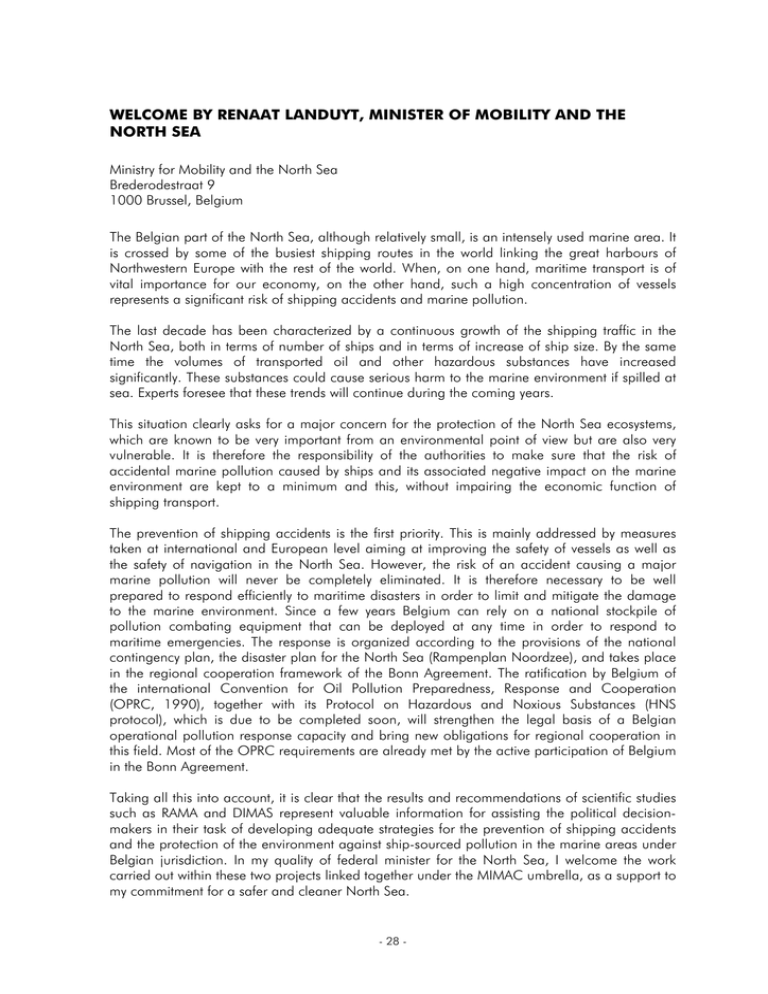
WELCOME BY RENAAT LANDUYT, MINISTER OF MOBILITY AND THE NORTH SEA Ministry for Mobility and the North Sea Brederodestraat 9 1000 Brussel, Belgium The Belgian part of the North Sea, although relatively small, is an intensely used marine area. It is crossed by some of the busiest shipping routes in the world linking the great harbours of Northwestern Europe with the rest of the world. When, on one hand, maritime transport is of vital importance for our economy, on the other hand, such a high concentration of vessels represents a significant risk of shipping accidents and marine pollution. The last decade has been characterized by a continuous growth of the shipping traffic in the North Sea, both in terms of number of ships and in terms of increase of ship size. By the same time the volumes of transported oil and other hazardous substances have increased significantly. These substances could cause serious harm to the marine environment if spilled at sea. Experts foresee that these trends will continue during the coming years. This situation clearly asks for a major concern for the protection of the North Sea ecosystems, which are known to be very important from an environmental point of view but are also very vulnerable. It is therefore the responsibility of the authorities to make sure that the risk of accidental marine pollution caused by ships and its associated negative impact on the marine environment are kept to a minimum and this, without impairing the economic function of shipping transport. The prevention of shipping accidents is the first priority. This is mainly addressed by measures taken at international and European level aiming at improving the safety of vessels as well as the safety of navigation in the North Sea. However, the risk of an accident causing a major marine pollution will never be completely eliminated. It is therefore necessary to be well prepared to respond efficiently to maritime disasters in order to limit and mitigate the damage to the marine environment. Since a few years Belgium can rely on a national stockpile of pollution combating equipment that can be deployed at any time in order to respond to maritime emergencies. The response is organized according to the provisions of the national contingency plan, the disaster plan for the North Sea (Rampenplan Noordzee), and takes place in the regional cooperation framework of the Bonn Agreement. The ratification by Belgium of the international Convention for Oil Pollution Preparedness, Response and Cooperation (OPRC, 1990), together with its Protocol on Hazardous and Noxious Substances (HNS protocol), which is due to be completed soon, will strengthen the legal basis of a Belgian operational pollution response capacity and bring new obligations for regional cooperation in this field. Most of the OPRC requirements are already met by the active participation of Belgium in the Bonn Agreement. Taking all this into account, it is clear that the results and recommendations of scientific studies such as RAMA and DIMAS represent valuable information for assisting the political decisionmakers in their task of developing adequate strategies for the prevention of shipping accidents and the protection of the environment against ship-sourced pollution in the marine areas under Belgian jurisdiction. In my quality of federal minister for the North Sea, I welcome the work carried out within these two projects linked together under the MIMAC umbrella, as a support to my commitment for a safer and cleaner North Sea. - 28 -

